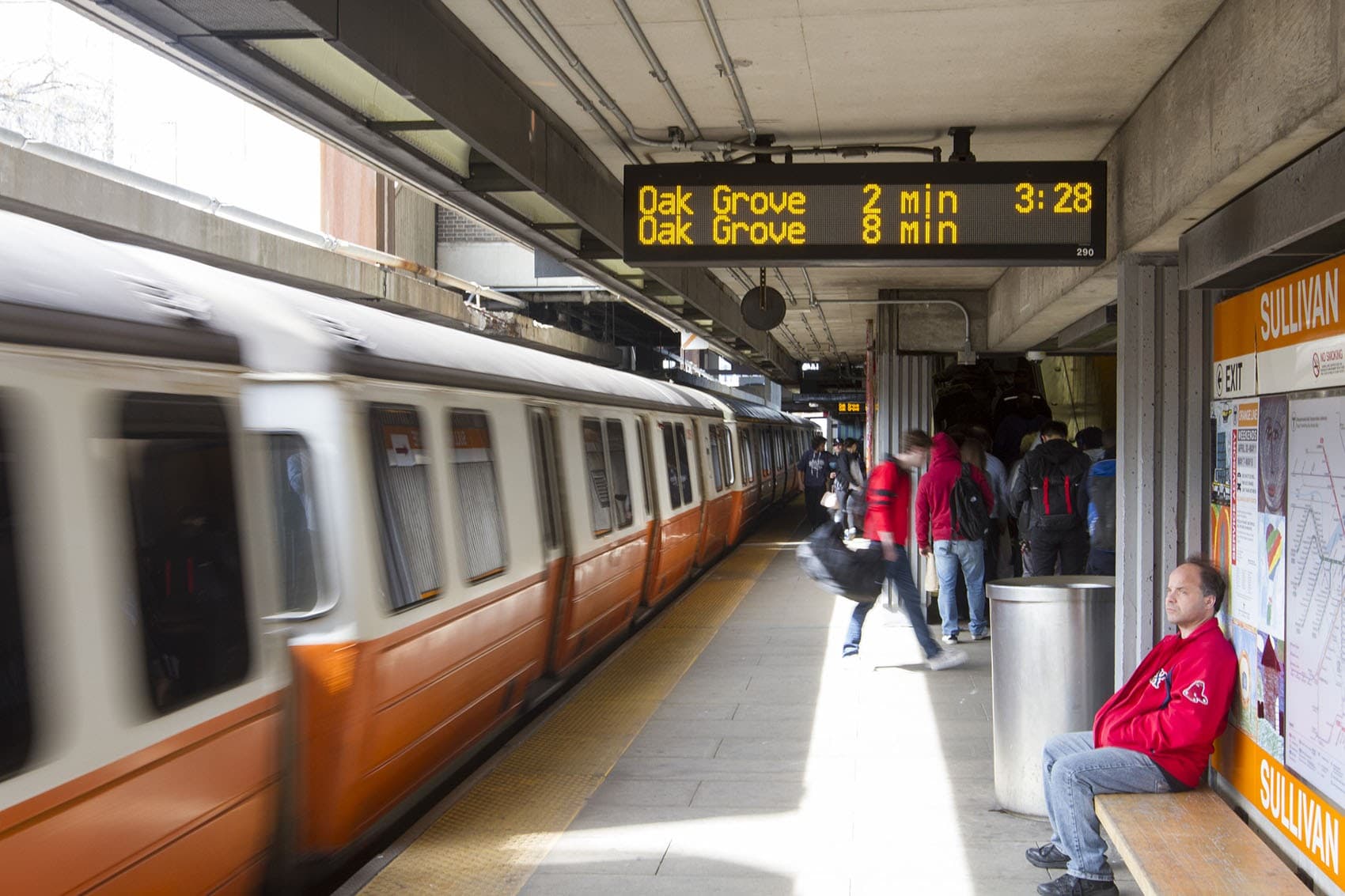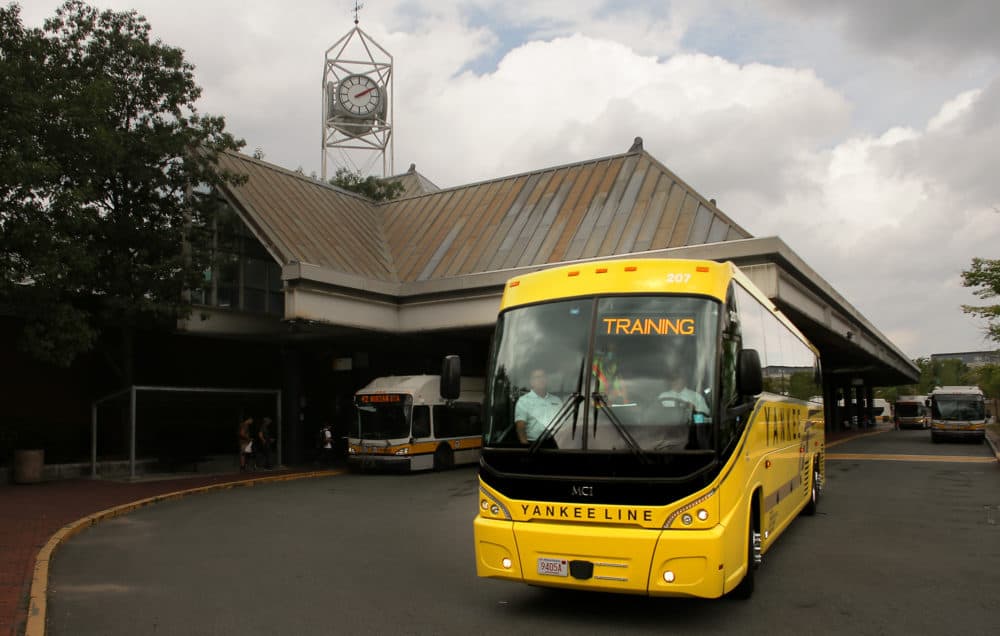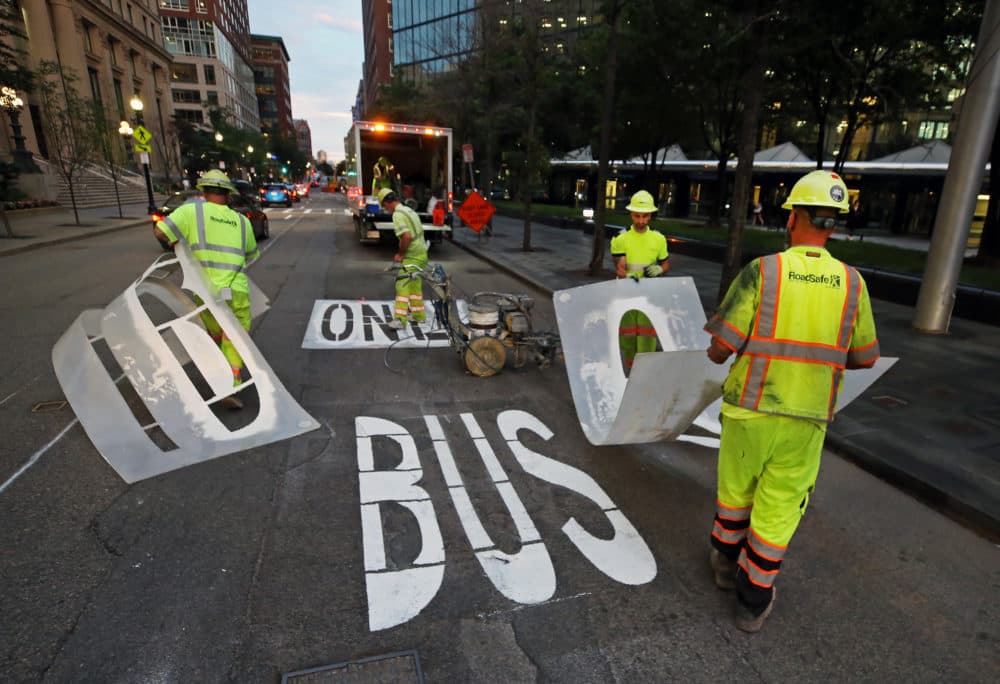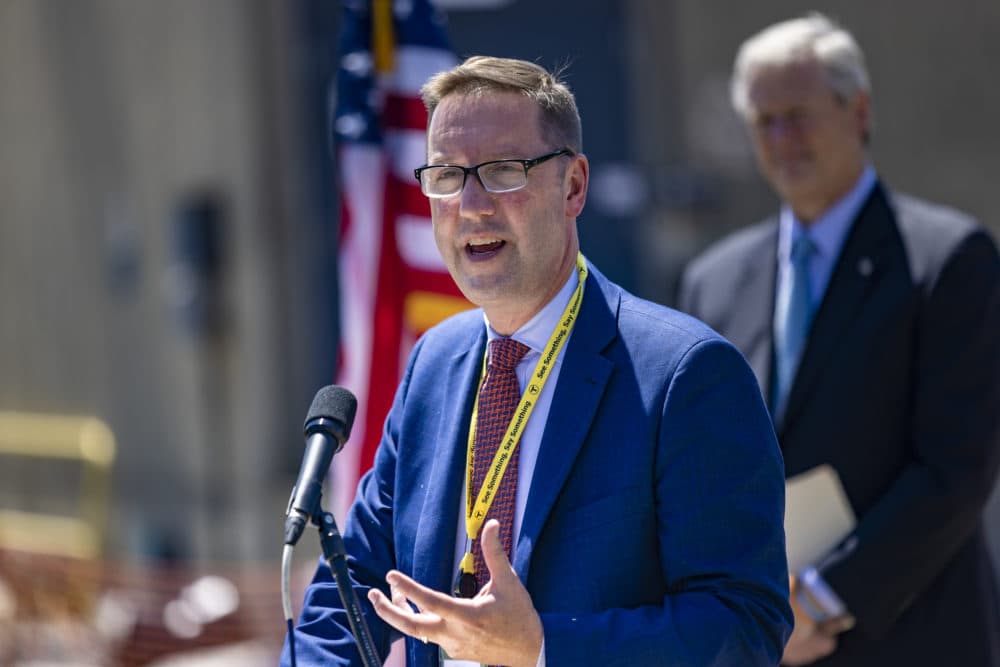Advertisement
MBTA riders suffered months of safety problems. Now they're bracing for a partial shutdown

It's been a rough year for passengers on the nation's oldest subway system.
One train after another has derailed in Greater Boston. An Orange Line car caught on fire, prompting one rider to jump into the Mystic River below. And in April, one man got his arm caught in a closing door and was dragged to his death.
Now, the Massachusetts Bay Transportation Authority (MBTA) plans to shut down one subway line, and a portion of another, for nearly a month, an unprecedented move that is forcing riders to find alternatives and threatens to snarl traffic across the region for weeks.
Specifically, the MBTA plans to halt trains on the entire Orange line starting Friday night, followed by the northern part of the Green Line starting first thing Monday. The MBTA plans to offer shuttle buses instead.
State transit officials say the lengthy closures are necessary for key repairs that will make the trains ride more smoothly and avoid even more intermittent shutdowns in the future. But many riders are skeptical the MBTA — known locally as the T — can actually solve all the safety problems in a month.
"What is it going to fix?" said Mela Bush, head of the T Riders Union in Boston. "There’s so many safety issues on the MBTA right now."
The issues have been so bad they sparked a Federal Transit Administration investigation and reports of a possible federal takeover of the system.
But the plans to shut down an entire subway line and part of another for nearly a month caught many residents by surprise. The MBTA only warned the public about the shutdowns a couple weeks in advance, and some government officials complain the T was slow to provide information on alternatives.

Jarred Johnson, of the nonprofit Transit Matters, said T officials have to better communicate the improvements and how the diversions will impact riders.
"I do think there's hope," Johnson said, but "we've seen too many projects that just sort of go on and on forever."
The impact is expected to be so significant that some transit officials warned drivers to avoid going into Boston if they can for a month.
The state’s highway chief, Jonathan Gulliver, says he expects T riders to spend the first few days of the shutdown figuring out alternate routes. Those days will be the hardest. He said he hopes people don't decide to give up and just drive instead.
"That's something that would not be a good scenario," he said.
Gulliver said people who drive in the area of the Orange Line — as well as the Union Square branch on the Green Line — should avoid any discretionary trips there.
Advertisement
The Orange Line alone serves more than 100,000 people a day, accounting for nearly a third of Boston's subway riders. Many others use the portion of the Green Line that will be affected, stretching from Government Center downtown to a new station in Union Square in Somerville, just north of Boston.

To help reduce the impact, Boston has created dedicated bus lanes for portions of the routes planned for shuttles, offered free bike rentals, waived fares for some riders who could use the commuter rail instead and promised help for some affected businesses.
Lots of riders wonder why the T didn't do the work earlier in the pandemic — when ridership was way down — or at least before the start of the school year.
The state’s former transportation chief, Jim Aloisi, questions the prudence of shutting down two train lines at the end of summer.
"It seemed to be rushed, and it seemed to me to be the kind of thing that you do after, frankly, months of planning — during the summer and not after Labor Day," he said.
Lucy Calado, of Somerville, rides the Orange Line to get to her job downtown every weekday. It’s normally a straight shot, but now she’s planning to ride shuttle buses for two hours each way. And together with the rising cost of rent, it’s making her reconsider living in the city, especially as a soon-to-be mother.
"With winter coming, if something like this were to happen — again, I'm expecting — I can't really take that risk right now," Calado said.
Another daily Orange Line rider, Victor Martiné, of Hyde Park in Boston, said he thinks the price of using shuttles is worth the cost to make the system better in the long run.
"If a soldier has to prepare to win a battle, then we can ride shuttle buses to get where we need to go," Martiné said in Spanish after getting on the subway at Back Bay Station.
One thing both advocates and current transit officials agree on: The T is a victim of decades of underinvestment, creating a growing mountain of maintenance problems.
Aloisi, the state’s former transportation chief, said the MBTA's troubles reflect a national shortage of funding for public transit in American cities and could herald similar problems across the country.
"As federal relief funding diminishes, as ridership is slower to recover, and as agencies face the harsh reality that they cannot depend on fare revenue as they used to," Aloisi said, "it’s a cautionary tale to every other transit agency and system in the country."

MBTA chief Steve Poftak said Friday the agency identified the maintenance work well before the shutdown was announced in early August, and will be focused primarily on safety improvements.
Poftak said planning for the work has been akin to choreographing a ballet.
"We have gone through what I would say is a very painstaking, excruciating process to make sure we've got that choreography as good as we can get it," he told reporters at a press briefing Friday morning.
Poftak said T riders should not expect further delays — he's confident the workers can complete the planned work over the next 30 days.
The T has budgeted $37 million for shuttle buses during the Orange and Green Line shutdowns. Poftak said he couldn't provide a cost estimate for the repair work.
He told reporters that Orange Line operators will spend the shutdown helping riders navigate the diversion and undergoing safety training.
